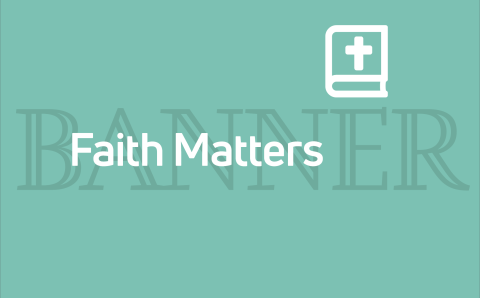As the Council of Delegates of the Christian Reformed Church in North America met last week in Grand Rapids, Mich., general secretary Zachary King welcomed delegates to what he called “a new epoch of ecclesiastical governance of the Christian Reformed Church.”
King was referring to changes to the way members of the Council conduct and divide their work between “ecclesiastical governance” and “organizational governance” – a delineation the denominational board has been working toward since February 2020. The structure was formally adopted by Synod 2022 and implementation included revamping the Council of Delegates Governance Handbook, which was endorsed by Synod 2023 in June. (Synod is the broadest assembly of the Christian Reformed Church and the Council of Delegates acts on its behalf in between meetings of synod.) This October meeting is the first to be held with the fully implemented structure and governance changes.
“This new way of functioning starts today,” King said at the Oct. 11 plenary of the Council.
He described ecclesiastical governance as “the influence exercised by church bodies such as CRC councils, classes, and synod to shape our beliefs, values, and ministry commitments according to Scripture, our creeds and confessions, and the Spirit’s leading.” That governance work includes assignments from synod, Church Order matters, overall vision and value setting, the health of classes and churches, and collaboration between CRCNA agencies and institutions.
It’s the final one on the above list that led the Council to create its new “Connections” committee, tasked with engaging and strengthening relationships with Calvin University, Calvin Theological Seminary, and World Renew, the CRC’s development and relief agency. The Council also renamed or reformatted its other committees—creating one for governance of its own board (does a lot of the functions of the former nominating committee); maintaining one for synodical services and one for finance; and specifying three as ministry committees for ReFrame Ministries, Resonate Global Mission, and Thrive, the CRC’s new congregation-focused ministry officially constituted by Synod 2023.
“Committees exist to give attention to things that we can’t easily attend to in a plenary session,” King said. A charter for each one is laid out in the Council of Delegates Governance Handbook.
A Committee for Connection
Calvin University, the seminary, and World Renew each have their own board so the Connections committee is not providing governance but, instead, connection to foster collaboration and mutual support. The committee will meet three times a year and report to the Council of Delegates, welcoming board guests from the three entities each time and, once per year, give each of the three a particular focus, inviting its director or president to present. William Koopmans, Classis Hamilton, and Jessica Maddox, Classis Grand Rapids South, are the committee’s chair and vice chair. Six other members of the committee have been assigned as board guests – two per entity – to represent the CRCNA back to the Calvin and World Renew boards.
Board Members Wear ‘Two Hats’
While the Council of Delegates governs ecclesiastical matters, details that are more organizational – such as high-level policy, budgets, advancement and fundraising – are governed by individual ministry boards, U.S. and Canada. King told delegates they essentially wear two hats: functioning as ecclesiastical oversight/governance as a Council of Delegates member and as organizational oversight/governance as a country-specific Ministry Board member.
The ministry boards met concurrently on Oct. 12.
Duty of Care, Loyalty, and Obedience
Michael Ten Haken, chair of the Council of Delegates, reminded delegates that they have three duties as a “fiduciary,” one who acts in the best interest of someone else. “You are an ambassador for the organization on whose board you are serving,” Ten Haken said. Each member also carries a duty of care, caring for the Christian Reformed Church in North America and its ministries; a duty of loyalty, and duty of obedience.
“You are duty-bound to carry out the purposes and mission of the CRCNA,” Ten Haken said. “We are beholden to a higher body and that would be synod. We need to promote the organization in a good and healthy way.”
Hyng-Jun Kim, Classis B.C. North-West, asked if these three duties apply to members whether they are acting as the Council of Delegates or for one of the ministry boards. Ten Haken agreed that they do.
Jeanne Kallemeyn, Classis Georgetown, said, “I think it’s important for classes to know that the COD is a deliberative body; we don’t necessarily take a directive from our classis of how we need to act here.”
King concurred: “You’ve been delegated by your classis to serve on the COD, and when you go back to classis you’re a representative of this body….We work as synod has directed us to do; your classis has delegated you and you’ve been appointed by synod to serve in this way.”
King encouraged all members who are uncertain about a direction or action to “reach out and ask questions” of him or any agency directors.
“We really want the accountability this body provides,” King said.
Ten Haken agreed. “It’s a privilege,” he said. “You have the opportunity to say ‘hey, I’m not so sure about that’ – to reach out and clarify.”
Drew Sweetman, Classis Muskegon, closed the introductory session in prayer, reminding the delegates, “We do this work not in our own strength and power, but the Lord working through us.”
About the Author
Alissa Vernon is the news editor for The Banner.









